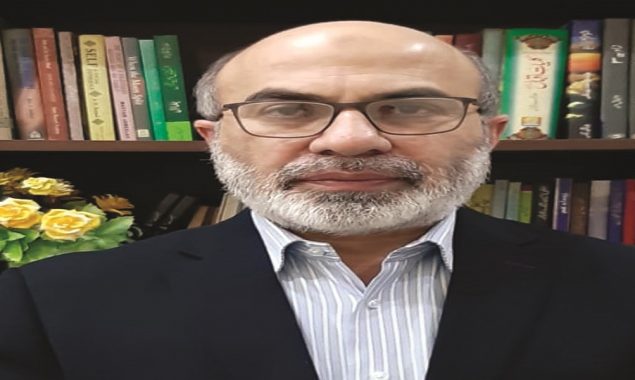Synopsis
An increasing number of new cancer cases is adding more burden on the healthcare system

KARACHI: Cancer is a disease mostly understood in society as a grave threat to human health. It is widely seen as an illness of excruciating pain.
It is becoming a serious health threat in Asian countries including Pakistan where it is a burden on the healthcare system. Cancer, a leading cause of death in the country, also strains the budgets of working families.
Dr Atif Hafeez Siddiqui, an associate professor at the Department of ENT Head and Neck Surgery at Dow Medical College and Dr Ruth K.M. Pfau Civil Hospital Karachi, told Bol News that in the year 2000, there were over three million new cancer cases registered and two million people died due to the disease in the Asia-Pacific region.
The expert, who has authored 40 articles published in peer-reviewed journals, added that the data suggests that in 2022, cancer cases will swell up to 7.1 million in this region, if existing prevention and management strategies remain unchanged.
There were reportedly core issues resulting in mouth cancer in the country as well. Be it 42-year-old Sarfraz from Liaquatabad, 55-year-old Bahadur from Jacobabad or 53-year-old Sofia, all have one problem in common — oral cancer mainly due to consuming gutka. Most of the patients suffering from oral cancers are usually young. All of them are in the most productive age group.
Their children and spouse are dependent on them, their parents need them and they should have been contributing to society. Instead they become a big liability for their loved ones. The whole domestic situation changes when a person develops cancer.
The sufferings are not only confined to financial issues but there are huge psycho-social problems as well. The number of oral cancer patients is surprisingly high at Civil Hospital Karachi; these cancer patients occupy 30 per cent to 50pc of beds in the hospital’s ENT Department.
Unfortunately, the cancer patients reportedly stay for a much longer time in the ward and consume more time during surgery, which is really exhausting for doctors and OT staff. Still, despite some tireless efforts from doctors to eradicate the disease, the deadly cancer is not eliminated easily and often rebounds after some time. This increases the misery of patients.
An increasing number of new cancer cases adds more burden on the healthcare system. This burden subsequently affects the quality of already compromised healthcare facilities in Pakistan.
To deal with this menace, Dr Siddiqui explained that some common cancers including breast cancer, different blood cancers, some of the GL-related cancers are caused by factors which are non-modifiable, while some of the common cancers such as cancers of oral cavity, bronchial cancers and laryngeal cancers are caused by factors which are definitely modifiable.
“Three major classes of factors influencing the incidence of cancer are, first, hereditary and cannot be modified. The second is environmentally potentially modifiable, for example exposure to extensive sunlight [as] carcinogens exist as pollutants in air, water, food, soil, etc. Third is behavioral and definitely modifiable such as tobacco and alcohol consumption, nutrition, obesity, some medical treatments like radiation. It is estimated that 75pc to 80pc of cancers are caused by environmental and behavioral factors combined.”
He revealed that around 33pc of cancer cases are linked to tobacco exposure. It is responsible for around 22pc cancer-related deaths. “Around 1.7 million deaths in 2008 were caused by tobacco.”
He further said that head and neck cancers refer to a group of biologically similar cancers arising from mucosal lining of lip, oral cavity, nose, sinuses, nasopharynx, oropharynx or larynx. “Around 90pc of them are squamous cell carcinoma. They have a high tendency to spread to neck nodes.”
The most recent data from different centres of Pakistan reflects the trend of rapidly increasing number of head and neck cancers.
Unfortunately there are no comprehensive databases or registries available especially for cancer in Pakistan, the medical expert shared. “Therefore, our current knowledge is based on sporadically available institutional base data.”
Regarding government efforts to combat cancer conditions in the people, he elaborated that in Karachi, 36pc of males and 21pc of females chew paan or paan with tobacco in it. “Tobacco smoking is practiced by 36pc male and 9pc female residents. The incidence of preventable cancers can be markedly cut down by some simple measures and introducing strict laws against advertisement, sale and supply of causative agents. These measures should be implemented by the government and fully supported by effective media campaigns.”
Read More News On
Catch all the Pakistan News, Breaking News Event and Latest News Updates on The BOL News
Download The BOL News App to get the Daily News Update & Follow us on Google News.




